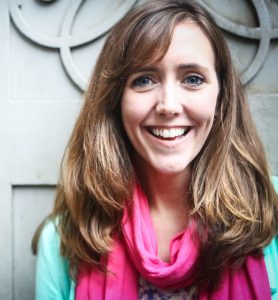“It’s difficult to be a faithful Catholic living in the world today.”
My grandfather spoke these words to me when I turned 13. I remember thinking that he was old, out of touch, and didn’t know what he was talking about. As a newly minted teenager, I expected to live a pretty carefree life, even as a Catholic.
But those words stuck with me, and now I see how prophetic they were, given the world we live in today. It’s hard to turn on the news without seeing negativity and darkness. The saying used to be “Sex Sells,” but now it could easily be “Anger Sells.”
Social media started out as a source of connection, but has quickly spiraled into a platform of isolation and division. Twitter has become a bastion for personal attacks and destroyed people’s personal lives and careers. Catholics, along with many people of faith and goodwill, have been scared into silence and conformity.
It was nearly 25 years ago when my grandfather said those words to me, when there were no smartphones and no social media. Things today are much different. The details of our personal lives, what we share about them and what people infer about them, are talked about on social media. We are much more exposed than ever before.
For followers of Christ, I think this means our life, mission, and example mean more than we might understand. Living out our faith in the public square is much more difficult, especially when the stakes are high and the circumstances are uncomfortable.

My first experience of this new reality was in September 2016, when The Washington Post published an op-ed I wrote with the title “I’m a 32-Year-Old Virgin, Living the Feminist Dream.” The article eventually went viral and caught the attention of people around the world (the headline certainly helped).
I was moved to write the piece after reading two other Post articles suggesting that the virtue of chastity was “archaic,” with the authors blaming abstinence for failures in life and love. Both of the authors expressed their personal and professional disappointment and felt that their Christian upbringing, particularly its teaching on abstinence, was at the root of their unhappiness.
There is an attitude in the culture that empowered women can get an education, excel in their chosen field, and settle down if and when they want — but also have gratuitous sex with no strings attached in the meantime. But the reality is that the first three objectives are harder to attain if the fourth is happening, too.
My experience was the complete opposite. I was taught that chastity is the perfection of love, and when understood and practiced fully, offers us true freedom and liberation.
That is what I experienced with God’s help: the choice to wait to have sex until marriage provided stability in my adolescence and young adulthood to figure out who I was, what I deserved, and what I wanted out of life — without the distraction of hookups, missed periods, or being used.
I have been able to live the “feminist dream” not in spite of my faith and beliefs but rather because of them. Opportunities I’ve seized to live somewhere new and exciting, travel, and chase my goals, dreams, and desires was made possible because of what I believe and how it influenced my decision-making.
I gained a deep level of confidence, clarity, and self-respect. Contrary to the other authors’ arguments, the sacrifices I made actually gave me more freedom. That is true feminism, in my eyes.
Ultimately, the article opened a lot of opportunities for discussions and outreach. To this day, I get notes and Facebook messages from people who just now have stumbled on it.
Some people agreed with me. Some of them told me it gave them courage to say publicly, “I’m living this way, too.” Others disagreed with the points I made but respect what I expressed.
And there were a few others — few and far between — who vehemently disagreed and tried to publicly shame me for living out my Catholic beliefs. I have compassion for those who disagree with me, including those who wrote vile and distasteful comments about me, my life, and the article online. I have come to recognize that oftentimes when people attack us, their aggression stems from their insecurities and unhappiness in their own life.
But the same world that often feels so isolating and dark also provides us with opportunities to share the joy, love, and purpose that our faith brings to us. I’ve found that these moments of courageous witness can be captivating and contagious.
When the opportunity to share the good news about chastity in a national paper of record presented itself, I did — and have no regrets.
But as Catholics, we don’t need major news media or even social media to provide a witness for others. Sometimes it just means having the courage to speak openly among peers, friends, and family members about what we believe and how we try to live it.
My grandfather was right. Looking back at my life thus far since age 13, I see how many opportunities God has given me to speak about faith and a life lived in friendship with Christ. But I’ve also learned that when we seize those opportunities, God has a way of blessing us in ways we could never imagine.
We have opportunities every day to be a witness of Christ’s love and for the fullness of faith. And while it may be difficult to be a Catholic living in the world today, the world needs us to, because the world needs God.

